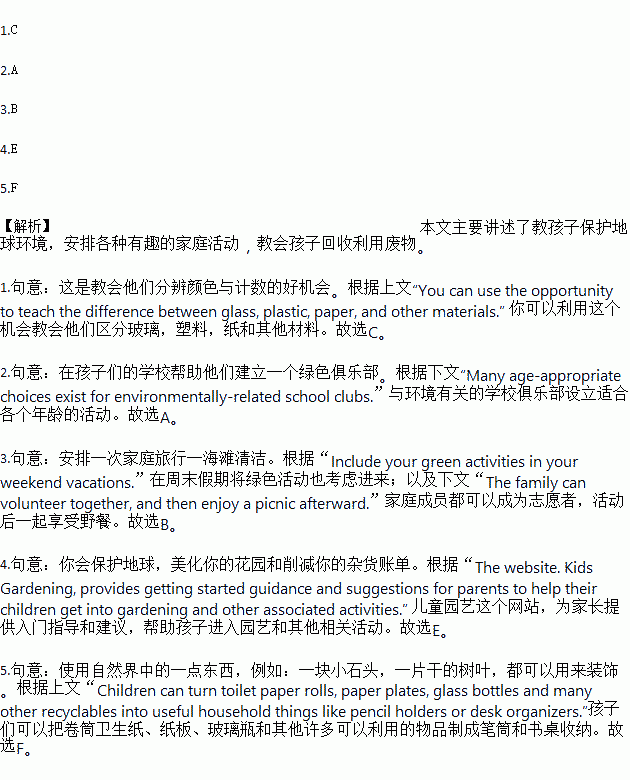题目内容
You want to help the environment. You want to teach your children to protect the earth. You can do both easily by making family activities environmentally-friendly. Planning activities around the natural world can be fun, and educational for all members of the family.
Make recycling a part of everyday chores (家务活儿).
Even the youngest children can help with recycling chores. For instance, a preschooler can help an adult or older child sort recyclables. You can use the opportunity to teach the difference between glass, plastic, paper, and other materials.1.
2.
Many age-appropriate choices exist for environmentally-related school clubs. For example, an explorers club that learns about a new rainforest or desert each week works for preschool or kindergarten. Primary and middle school classes may enjoy a gardening or recycled craft(手工工艺) projects club.
Plan green vacation activities.
Include your green activities in your weekend vacations.3.The family can volunteer together, and then enjoy a picnic afterward. You can also take your children to a natural science museum nearby. While there, discuss environment and conservation with them.
Plant a garden together.
Work together and grow organic(有机的)produce.4.The website. Kids Gardening, provides getting started guidance and suggestions for parents to help their children get into gardening and other associated activities.
Craft with recyclables.
Teach children arts and crafts using recyclables. Children can turn toilet paper rolls, paper plates, glass bottles and many other recyclables into useful household things like pencil holders or desk organizers.5.
A. Help start a green club at your children's school
B. Arrange your beach trip on the beach clean-up day.
C. It’s also a good opportunity to teach colors and counting.
D. Use these five activities as starting points for a greener family life.
E. You’ll protect the earth, beautify your garden and cut your grocery bill.
F. Use bits of nature, like small stone or dry leaves for decorative projects.
G. Clubs promote friendships based on common interests and encourage fun learning.
| A. | ought to | B. | could | C. | might | D. | were able to |

